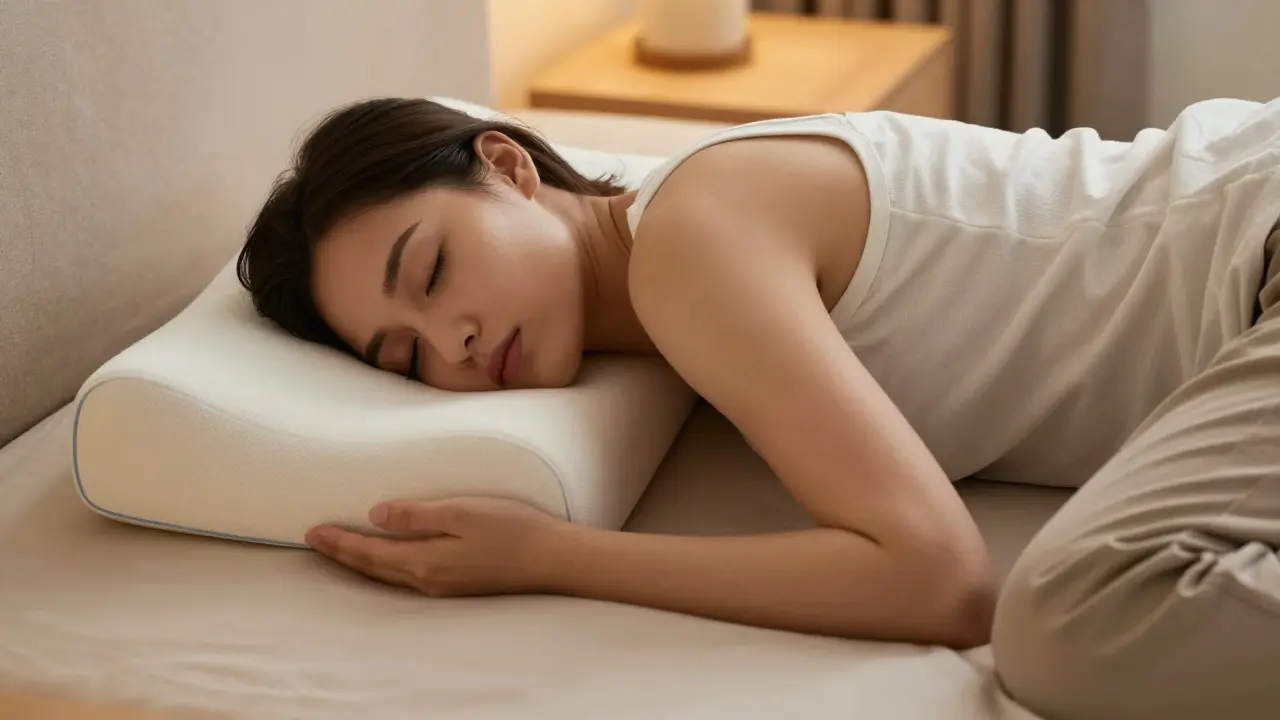Kvalita spánku: jak ucho, nos a krk ovlivňují váš spánek
When you struggle to sleep, it’s rarely just about stress or too much coffee. Often, the real culprit hides in your kvalita spánku, souhrn fyzických a fyziologických podmínek, které umožňují tělu a mozku se plně obnovit během spánku. Also known as hloubka a nepřerušovanost spánku, it’s directly affected by how well your ears, nose, and throat function at night. If your nose is blocked, your ears ache, or your neck is stiff, your body can’t relax fully—even if you lie still for eight hours. You might think you slept, but you didn’t rest.
A zablokovaný nos, stav, kdy je dýchání přes nos omezené nebo nemožné kvůli zánětu, alergii nebo přetížení sliznice is the silent thief of good sleep. When you can’t breathe through your nose, you start mouth-breathing. That dries out your throat, triggers snoring, and often leads to waking up gasping. It’s not just uncomfortable—it fragments your sleep cycles. You don’t remember it, but your brain keeps jerking you awake just enough to switch from deep sleep to light sleep. Over time, this drains your energy, hurts your focus, and even raises blood pressure.
And what about your bolest ucha, příznak zánětu středního ucha, infekce nebo akumulace tekutiny, která ruší spánek hlavně v noci? Nighttime is when pressure builds up in the middle ear. Lying down makes it worse. The pain doesn’t always wake you up completely—but it keeps you in that half-awake state, where you never reach true rest. Parents know this well: a child who tosses and turns, cries quietly, or wakes up every hour might not have a fever—but they have an ear infection.
Then there’s the ztuhlý krk, napětí nebo ztuhlost v oblasti krční páteře, která omezuje pohyb a způsobuje bolest, která se šíří do hlavy a ruší spánek. A bad pillow, slouching all day, or sleeping in an awkward position tightens the muscles around your neck. That tension sends signals to your brain that something’s wrong—so it stays alert. Even if you don’t feel pain during the day, your neck might be screaming at night.
These aren’t separate problems. They’re connected. A blocked nose leads to mouth breathing, which dries your throat and irritates your tonsils. A sore throat can trigger neck tension. Ear pain makes you sleep on one side, which twists your neck. And a stiff neck? It can even affect your Eustachian tube, making your ears feel clogged. It’s a loop—and it breaks your sleep.
You don’t need to live like this. Simple fixes—like cleaning your nose before bed, using the right pillow, or knowing when to see a specialist—can turn nights from torture into real rest. Below, you’ll find practical advice from real cases: how to clear your nose without drops, what to do when your ear hurts at 2 a.m., why your pillow might be the reason you wake up with a stiff neck, and how to stop the cycle before it starts.

Na jaké straně je nejlepší spát? Vědecky ověřené doporučení pro zdravý spánek a klidný krční páteř
Zjistěte, na jaké straně je nejlepší spát pro zdraví krční páteře. Vědecky ověřená doporučení pro klidný spánek, bez bolestí krku a hlavy. Levý bok je nejlepší volba - proč a jak to udělat správně.

Na které straně se nemá spát? Pravda o pozici spánku a zdraví krční páteře
Spánek na levé straně může způsobovat bolesti krku a závratě. Zjistěte, na které straně se nemá spát, jak vybrat správný polštář a jak změnit pozici, aby se vaše krční páteř nezatěžovala.